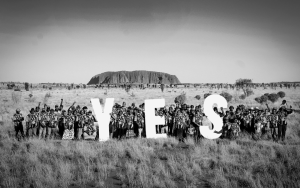275 years later by W. B. Allen
The year 1748 witnessed the publication of the landmark Spirit of the Laws by French philosopher Charles Montesquieu. That work bequeathed the separation of powers and checks and balances to the modern world – fundamental concepts that shaped the Constitution of the United States. Spirit of the Laws contained this observation: ‘Liberty is … not there, when the authority to judge is not separated … If it were bound to the executive authority, the judge could have the strength of an oppressor … Judges should be of the same condition of the accused, or his peers, so that he would not be able to imagine that he might have fallen into the hands of persons bent on doing him violence … the authority to judge, so terrible among men, … becomes, so to speak, invisible and null’
Here Montesquieu – himself a judicial officer – uses the term ‘judge’ to refer to what we know as ‘juror’. He prescribed leaving decisions in the hands of jurors for the protection of liberty. That formula has proved fundamental, despite the laws of the United States having placed great power in the hands of judges, from whose discretion we have come to look for a tempering influence in the law.
Before our time, that tempering influence was more broadly exercised. For example, in The ‘Whiskey Rebellion’ of 1793, George Washington displayed it in responding to that violent insurrection (public officers tarred and feathered and offices burned to the ground). That episode was so severe that Washington had to lead a military force into Western Pennsylvania in order to quell the rebellion. Once judicial process was observed and peace restored, however, Washington applied a general amnesty to the participants, judging that the common good depended more on conciliation than on retribution.
In acting thus, Washington further followed Montesquieu’s guidance, distinguishing insurrectionary opinions from insurrectionary acts. For Montesquieu also urged that ‘Sayings do not form a tangible offence. They lie only in the idea … Th[e] meaning depends upon the connection they have with other things … How then [does one] make a crime of lese majesty [treason] out of them? Everywhere that law is established, not liberty only but even its shadow no longer exists’.
In our time, a raucous, unarmed riot occurred at the national capitol in 2021, which generated fears of insurrection and subsequent prosecutions. No military response was required. Most of the prosecutions turned on things that were said rather than things that were done. Judgments in these cases go to jurors eventually, but judges play a major role in shaping what jurors get to say or do. Meanwhile, it is somewhat difficult to avoid imagining what Washington would have done. Despite facing a far more serious challenge, he wisely extended an amnesty that had the effect of restoring the disaffected to participation in the general community. One might reasonably think that the country stands in no less – and perhaps even greater – need of such wisdom in 2023 than it did in 1793. The lessons of 275 years ago underscore that wisdom.
Latest Posts

Voice, Democracy and the Future of Reform
This is a guest post by Gabrielle Appleby and Megan Davis, authors of The Failure of the Voice Referendum and the Future of Australian Democracy Don’t be fooled by...

Talk of the Town: Monthly Publishing Industry News Digest
Global publishing and research continue to shift under the pressures of technological change, policy reform and international collaboration. From market insights at major book fairs to debates around open access,...

Featured Monthly Releases – January 2026
January opens the year with a sense of renewal and momentum, setting the tone for the months ahead. Discover our featured releases for this month. The Failure of the Voice...

When the Mirror Lies: A Female Bodybuilder’s Battle with Fitness Tech and Body Dysmorphia
This is a guest post by Asegul Hulus, author of Beyond the Metrics: The Psychological Impact of Fitness Technology on Self-Image and Social Anxiety Six months have passed since I...

